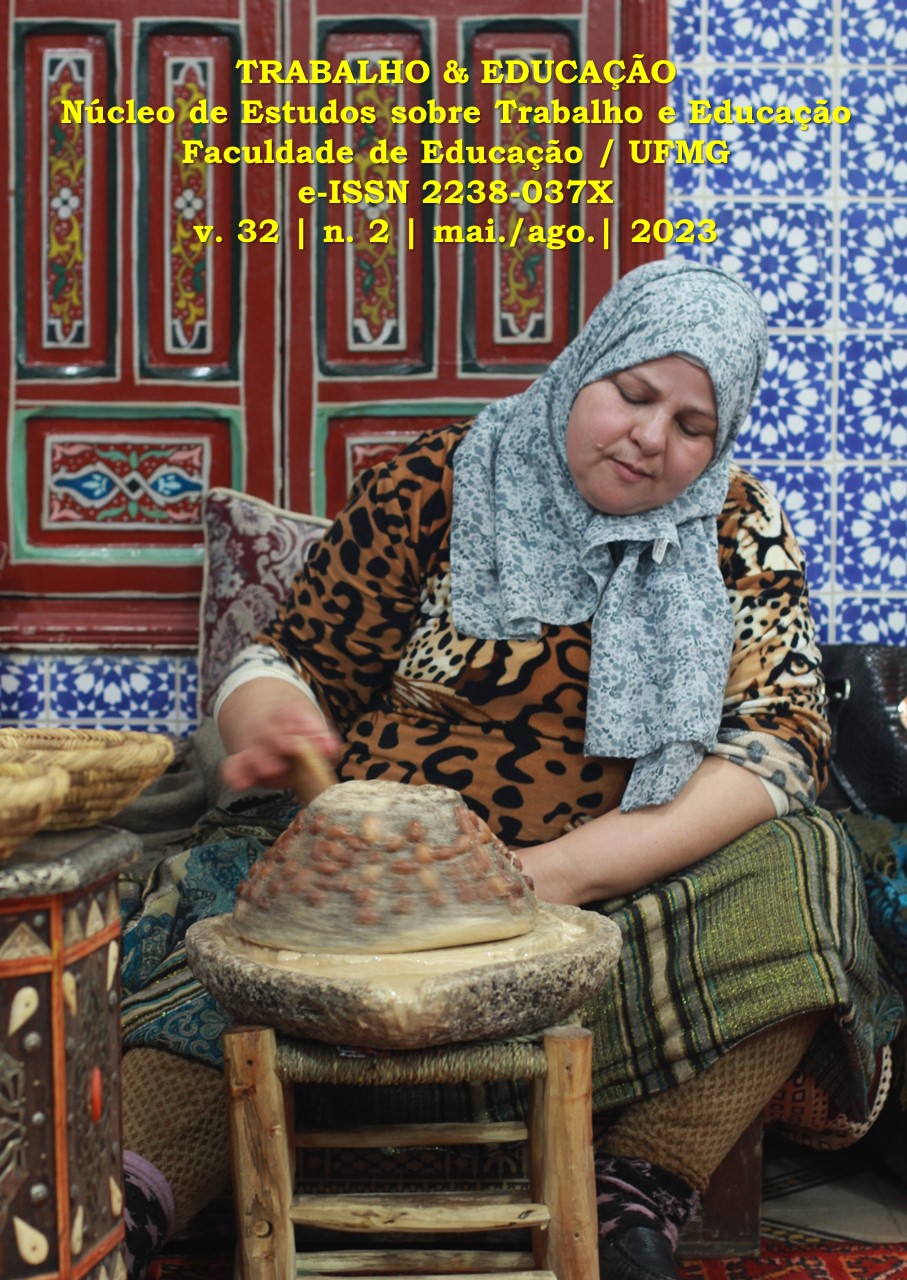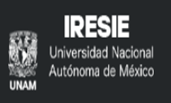Memory
between adherence and dis-adherence
DOI:
https://doi.org/10.35699/2238-037X.2023.47935Keywords:
Working memory, Virtual communities, PluridisciplinarityAbstract
Human memory is a component that is universally mobilized in all forms of work, while remaining vague or segmented by scientific fields. This situation can lead to impoverished applications of the concept of memory to work situations. We propose to bring together disciplinary approaches from the cognitive and social sciences to better understand the functioning of memory by relying on the dialectic pair adherence - disadherence. To illustrate this multidisciplinary exercise, we mobilize an exploratory study of the case of French scientific and cultural communication on the YouTube platform. We argue that memory is a space where knowledge and values are reinterrogated in the choices we make daily and projected into the present and future. It is this knowledge and these values that will be able, through certain social and cognitive units and techniques, to generalize and define the memory to come in our social and digital worlds. More generally, through this exercise, we invite researchers and those involved in work situations to a form of reflexivity in action on their own conceptualizations.
Downloads
References
ALLEN, M.; BROWN, S. D. Memorial meshwork: The making of the commemorative space of the Hyde Park 7/7 Memorial. Organization, [s. l.], v. 23, n. 1, p. 10–28, 2016.
ARGYRIS, C.; SCHÖN, D. A. Organizational Learning: A Theory of Action Perspective. [S. l.]: Addison-Wesley Publishing Company, 1978.
ATKINSON, R. C.; SHIFFRIN, R. M. Human Memory: A Proposed System and its Control Processes. Em: SPENCE, Kenneth W.; SPENCE, Janet Taylor (org.). Psychology of Learning and Motivation. [S. l.]: Academic Press, 1968. v. 2, p. 89–195.
AUBIN, G.; COYETTE, F. Neuropsychologie de la mémoire de travail. Marseille: Solal, 2007. 2007.(Neuropsychologie).
BADDELEY, A. Working Memory: Theories, Models, and Controversies. Annual Review of Psychology, [s. l.], v. 63, n. 1, p. 1–29, 2012.
BADDELEY, A. D.; HITCH, G. Working Memory. Psychology of Learning and Motivation, [s. l.], v. 8, p. 47–89, 1974.
BADDELEY, A. D.; HITCH, G. J.; ALLEN, R. J. From short-term store to multicomponent working memory: The role of the modal model. Memory & Cognition, [s. l.], v. 47, n. 4, p. 575–588, 2019.
BERTHOZ, A. La décision. Paris, France: Odile Jacob, 2003.
BLOCH, M. L’Anthropologie et le Défi cognitif. Odile Jacobed. Paris, France: [s. n.], 2013. (Travaux du Collège de France).
BOLTANSKI, L.; THÉVENOT, L. De la justification : les economies de la grandeur. [S. l.]: Gallimard, 1991.
CANGUILHEM, G. Le normal et le pathologique. Paris, France: Presses universitaires de France, 1966.
CASEY, A. Organizational Identity and Memory: A Multidisciplinary Approach. New York: Routledge, 2018.
CHAN, T.; WANG, I.; YBARRA, O. Leading and Managing the Workplace: The Role of Executive Functions. Academy of Management Perspectives, [s. l.], v. 35, n. 1, p. 142–164, 2021.
CHIAPELLO, E.; BOLTANSKI, L. Le nouvel esprit du capitalisme. Gallimarded. Paris: HAL, 1999. 1999.
COOLIDGE, F. L. The enhanced working memory model: Its origin and development. Em: SQUEEZING MINDS FROM STONES: COGNITIVE ARCHAEOLOGY & THE EVOLUTION OF THE HUMAN MIND. New York, NY, US: Oxford University Press, 2019. p. 406–431.
CORDIER FRANÇOISE; GAONAC’H DANIEL. Apprentissage et mémoire. Paris: Armand Colin, 2007. 2007.(128 Psychologie Psychanalyse).
CORTÉS PASCUAL, A.; MOYANO MUÑOZ, N.; QUÍLEZ ROBRES, A. The Relationship Between Executive Functions and Academic Performance in Primary Education: Review and Meta-Analysis. Frontiers in Psychology, [s. l.], v. 10, 2019.
COWAN, N. Working memory development: A 50-year assessment of research and underlying theories. Cognition, [s. l.], v. 224, p. 105075, 2022.
DAMASIO, A. R. L’ Autre moi-même : les nouvelles cartes du cerveau, de la conscience et des émotions / Antonio Damasio. [S. l.]: O. Jacob. Paris, 2010.
D’ANDRADE, R. G. The development of cognitive anthropology. New York, NY, US: Cambridge University Press, 1995. 1995.(The development of cognitive anthropology). p. xiv, 272.
DEHAENE, S. Le code de la conscience. [S. l.]: Odile Jacob, 2014. 2014.
DHOLAKIA, U. M.; BAGOZZI, R. P.; PEARO, L. K. A social influence model of consumer participation in network- and small-group-based virtual communities. International Journal of Research in Marketing, [s. l.], v. 21, n. 3, p. 241–263, 2004.
DI RUZZA, R.; SCHWARTZ, Y. Agir humain et production de connaissances. [S. l.]: Presses Universitaires de Provence, 2021. (Episteme).
DORTIER, J.-F. L’Homme cet étrange animal. Sciences humainesed. Paris: [s. n.], 2004.
DURRIVE LOUIS. L’expérience des normes: comprendre l’activité humaine avec la démarche ergologique. Toulouse: Octarès éditions, 2015. 2015.(Collection Travail & activité humaine).
EISENMAN, M.; FRENKEL, M. Remembering Materiality: A Material–Relational Approach to Organizational Memory. Organization Theory, [s. l.], 2021.
ERICSSON, K. A.; KINTSCH, W. Long-term working memory. Psychological Review, USv. 102, p. 211–245, 1995.
ESMAILY, A.; JAMBARSANG, S.; MOHAMMADIAN, F.; MEHRPARVAR, A. H. Effect of shift work on working memory, attention and response time in nurses. International Journal of Occupational Safety and Ergonomics, [s. l.], v. 28, n. 2, p. 1085–1090, 2022.
FEENBERG, A. Tecnologia, modernidade e democracia. [S. l.]: Inovatec Press, 2018. 2018.
FOURCADE, M.; HEALY, K. Seeing Like a Market. Escholarship, University of California, 2017.
GREEN, Joshua. B.; BURGESS, J. YouTube: Online Video and Participatory Culture. John Wiley&Sonsed. New Jersey: [s. n.], 2009.
GROSJEAN, S.; BONNEVILLE, L. Saisir le processus de remémoration organisationnelle. Revue d’anthropologie des connaissances, [s. l.], v. 3, n. 2, 2009.
HALBWACHS, M. La Mémoire collective | Éditions Albin Michel. Albin Micheled. Paris: [s. n.], 1950.
HOFSTEDE, G. Culture and Organizations. International Studies of Management & Organization, [s. l.], v. 10, n. 4, p. 15–41, 1980.
HOLFORD, W. D. Chapter 5: Human Cognition and Behavior: A Computational and Representational Decision-Making Perspective. Em: HUMAN ENACTMENT OF INTELLIGENT TECHNOLOGIES: TOWARDS MÈTIS AND MINDFULNESS. World Scientific Publishing Coed. [S. l.: s. n.], 2021. p. 57–78.
HOUDÉ, O.; KAYSER, D.; KOENIG, O.; PROUST, J.; RASTIER, F. Vocabulaire de sciences cognitives : neuroscience, psychologie, intelligence artificielle, linguistique et philosophie. Presses universitaires de Franceed. Paris: [s. n.], 1998. 1998.(Psychologie et sciences de la pensée).
KELLOGG, K. C.; VALENTINE, M. A.; CHRISTIN, A. Algorithms at Work: The New Contested Terrain of Control. Academy of Management Annals, [s. l.], v. 14, n. 1, p. 366–410, 2020.
KOLKOWSKA, E.; KARLSSON, F.; HEDSTRÖM, K. Towards analysing the rationale of information security non-compliance: Devising a Value-Based Compliance analysis method. The Journal of Strategic Information Systems, [s. l.], v. 26, n. 1, p. 39–57, 2017.
LEIDNER, D. E.; KAYWORTH, T. Review: A Review of Culture in Information Systems Research: Toward a Theory of Information Technology Culture Conflict. MIS Quarterly, [s. l.], v. 30, n. 2, p. 357–399, 2006.
LEROI-GOURHAN, A. Le geste et la parole : la mémoire et les rythmes : volume 2. Paris: Albin Michel, 1998. 1998.(, v. VOLUME 2).
MIYAKE, A.; SHAH, P. Models of working memory: Mechanisms of active maintenance and executive control. New York, NY, US: Cambridge University Press, 1999. 1999.(Models of working memory: Mechanisms of active maintenance and executive control). p. xx, 506.
PARAPONARIS, C. Le passage des frontières : difficultés et perspectives. L’expérience des frontières cognitives. [S. l.]: Presses Universitaires de Provence, 2017. 2017.p. 89.
POITOU, J.-P. Des techniques de gestion des connaissances à l’anthropologie des connaissances. Revue d’anthropologie des connaissances, Grenoblev. 1, 1, n. 1, p. 11–34, 2007.
ROWLINSON, M.; BOOTH, C.; CLARK, P.; DELAHAYE, A.; PROCTER, S. Social Remembering and Organizational Memory. Organization Studies, [s. l.], 2010.
SCHWARTZ, Y. Le paradigme ergologique ou un métier de philosophe. Première édition, ed. Toulouse: Octarès Editions, 2000. 2000.(Travail et activité humaine).
SCHWARTZ, Y. Travail, ergologie et politique. [S. l.]: Dispute (La), 2021. 2021.
SCHWARTZ, Y.; DURRIVE, L. Entretiens sur l’activité humaine, 2. L’Activité en Dialogues : [suivi de] Manifeste pour un ergo-engagement. 1ère éditioned. Toulouse: Octarès Editions, 2009. 2009.(Travail et activité humaine).
SCHWARTZ, Y.; DURRIVE, L. Travail et Ergologie - Entretiens sur l’activité humaine (1). Toulouse: Octares Editions, 2003. 2003. Disponível em: https://www.octares.com/travail-et-activite-humaine/33-travail-et-ergologie-entretiens-sur-l-activite-humaine-1.html. Acesso em: 20 fev. 2023.
SCHWARTZ, Y.; ECHTERNACHT, E. Le corps-soi dans les milieux de travail. Corps, [s. l.], n. n°6, p. 31–37, 2009.
WALSH, J. P.; UNGSON, G. R. Organizational memory. Academy of Management Review, [s. l.], v. 16, n. 1, p. 57–91, 1991.
WASKO, J.; ERICSON, M. The Political Economy of YouTube. Em: SNICKARS, Pelle; VONDREAU, Patrick (ed.). The YouTube Reader. Wallflower Press.ed. New York, NY, US: [s. n.], 2009. p. 372–386.
WEICK, K. E. Sensemaking in Organizations. [S. l.]: SAGE, 1995. 1995.
WEILL-FASSINA, A.; RABARDEL, P.; DUBOIS, D. Représentations pour l’action. première éditioned. Toulouse: Octarès Editions, 1993. 1993.(Travail).
WEINBERGER, E.; WACH, D.; STEPHAN, U.; WEGGE, J. Having a creative day: Understanding entrepreneurs’ daily idea generation through a recovery lens. Journal of Business Venturing, [s. l.], v. 33, n. 1, p. 1–19, 2018.
Downloads
Published
How to Cite
Issue
Section
License
Copyright (c) 2023 Trabalho & Educação

This work is licensed under a Creative Commons Attribution 4.0 International License.
Os autores têm autorização para assumir contratos adicionais separadamente, para distribuição não-exclusiva da versão do trabalho publicada nesta revista (ex.: publicar em repositório institucional ou como capítulo de livro), com reconhecimento de autoria e publicação inicial nesta revista.












